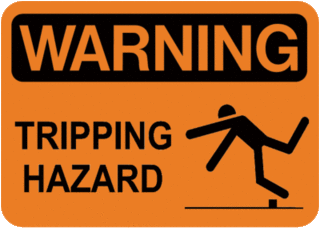Path to Freedom by Charlie Shrem - Rational Thinking

I've been out of prison for about 6 months now and the first question people ask me "Whats it like being free after a year in prison?"
My answer is always different.
I would say the emotion I feel most often is gratitude. I'm very grateful for you guys and my friends and family for having stood by me. Yesterday the owner of my gym said "Hey man, I didn't know you were the Charlie Shrem, thanks for your crusade for personal liberty". That always hits me like a brick when someone recognizes me. It used to fuel my ego and pride but now it just makes me want to give everyone a hug.
See, I wasn't always like this. You can find articles online about me and easily say "Look at this stupid rich kid with the ego". I admit it, sometimes I was a dick and mean to people. I loved everyone, but as Bitcoin grew and my company took off I let it get to my head. And then one day I was arrested at the airport and it all came tumbling down.
In prison it was an uphill battle. The problem with being in the newspapers is people can read about you, judge you and come up with their own conclusions about you without even knowing you. As you read from my Geek in Prison series, most people knew about me from day 1. This was a very bad thing. I had to constantly prove myself to be a good person.
When I was in prison, I learnt a lot of rational thinking. How does our thinking effect the way we act and react?

For example, if your partner leaves his shoes in the hallway and you trip over them, your first reaction is "You should move your shoes!" and you get angry. This is a negative reaction.
You can train yourself to do what they called a "rational self analyses". There are various thinking errors that cause you to have a negative emotion. If you catch those thinking errors in the process you could potentially stop a negative action. Now, if you trip over shoes it still hurts and of course your partner knows that leaving the shoes in the hallway is a bad idea, but does your reaction have to be negative?
The "should" statement is an example of a thinking error that can quickly get you angry. Remember, its not about who is right our wrong or anything like that, its your reaction. When you have a negative reaction you go from problem solving to problem creating.
"You should move your shoes!" is a thinking error.
Here are other thinking errors:
Absolutes– Thinking in absolute, extreme, over-generalized or stereotyped ways. Using terms such as “never”, “always”, or “forever” when they are clearly invalid
Awfulizing – Looking at things in a negative way. Some types of this error are:
Thinking that you can’t tolerate an unpleasant emotion or that you will go crazy or die if you experience one; Thinking that a problem is more severe than it is; exaggerating how bad something is; Thinking that only bad things will certainly happen;
Blaming – Thinking that other people or things are totally responsible when bad things happen to you.
I Can’t– Making excuses for not doing something, or declaring that you are not able to do it. Some types of this error are:
Have To/Need/Must – Saying that you “have to” behave in some way; thinking that some behavior which you have chosen or selected was coerced or reflexive. Treating a want, desire, or preference as if it were a need.
Loaded Words – Loaded words trigger images that create strong feelings. Loaded words lead to unwanted feelings and emotions. Put downs are ways to disrespect someone else to make yourself feel better or attempt to put others down to your level of emotional state.
He/She/It Statements – Suggesting that you are not in control of your feeling or emotions and someone else is causing you to feel a certain way. Others may contribute to your emotions, but they are not the sole cause. You create your own self-esteem and your own feelings.
Statement of Fact – This is when you make an assumption or opinions about something and then present your opinion as fact.
Rhetorical Question – You often hide your thoughts in questions, because you really don’t want an answer. They are questions in which you are making a statement rather than looking for information (making a statement that sounds like a question). Example: How stupid do you think I am? There are hidden motives behind rhetorical questions.
Should – Demanding that they world be a certain way; demanding that the behavior of others, self, or objects be a certain way, usually the way you want them to be. This may take the form of demanding immediate gratification.
I studied these thinking errors and tried to learn how to catch myself in the process of doing them and it changed my life. I'm not perfect but I no longer allows these thinking errors to make me a feel a certain way.
I used to awfulize all the time. In fact, they said that I was catastrophizing which is worse. I would always assume the worst catastrophe would happen and react on that.

You can check yourself for memorizing these thinking errors and doing constant self analyses by saying "Why am I reacting this way".
What are your beliefs that led you to a consequences?
For the shoes example, my beliefs were that my partner should move her shoes. The consequences were that I got angry and had a fight with her about it. If I challenge that belief by saying "Well, things happen and we all forget to do things sometimes", in time the desired consequences are better. I don't get angry and I become more understanding.
How do you deal with issues like this?
-Charlie
I have been applying those principles for some time now.
The only obstacle that I noticed are people around you with negative thinking or emotions. But ignoring those negative emotions can be also addressed as another 'principle'. This is not easy, though.
This is your best post here so far. (IMHO).
I DOUBLE DOWN with @cryptomental here - your most cathartic post so far!
Thank you guys !
Agreed!
Such a fantastic post. Thank you Charlie. This is powerful:
I often think about the role of expectations in creating our frustrations. They are often either unspoken and unmet or spoken and still unmet.
Person 1:
"I'm frustrated because you didn't meet my expectations!"
Person 2:
A1: "I would love to, but you didn't communicate them to me in a way I can understand. Can we try again? Let me repeat back what I think you expect from me."
A2: "In this case, I cared more about myself than meeting your needs. I don't want to do that, I'm so sorry, and I need your help to change. Let's work on an action plan for the next 30 days."
A3: "I tried and tried, but your expectations are beyond my ability and may even be irrational. Can we work to reset your expectations and meet in the middle?"
Those are just some of the ways we can get around it. As with many things, it comes down to good communication and self-awareness. Do we accurately communicate our expectations? Are our expectations rational?
Love it.
The process is always: thought, feeling, action.
So the emotion is never 'wrong', it's simply the consequence of a thought process. Thought processes however can be wrong, and are the thing we need to focus on examining.
We can reverse engineer the feeling like you say, by observing the emotion and then asking "What must I be doing inside my head in order for me to end up generating this emotion?".
Our perspective on reality may end up being accurate, in which case the emotion is justified, however more often than not we judge a situation based on very little information.
Great article, and sorely needed.
Emotional responses are not based on sound reasoning. Sometimes it doesn't matter, but often it does.
Our emotions need to be informed by rational thinking. Then we can train ourselves to respond appropriately and in a manner that positively affects those around us, rather than negatively.
These skills are sorely needed in our entitlement and victim mentality society.
<3 A painful heartfelt journey as you move from acting from the ego to acting from the heart. Well done Charlie. Your truly free in more ways than one ;) <3
@charlieshrem beautiful post my friend. beautiful words that you used, it will be thought to more than one. Congratulations and thank you for sharing this beautiful post.
Great post Charlie and all the very best for the future. My views are that the partner should have moved the shoes
Such a nice couple
Very good post, Charlie! It’s so important to be mindful of your thoughts and actions, I think this is one reason people who regularly meditate experience such a positive transformation.
i absolutely agree with this post and try to apply the principles in daily life.
certainly turns some aspect of everyday life around.